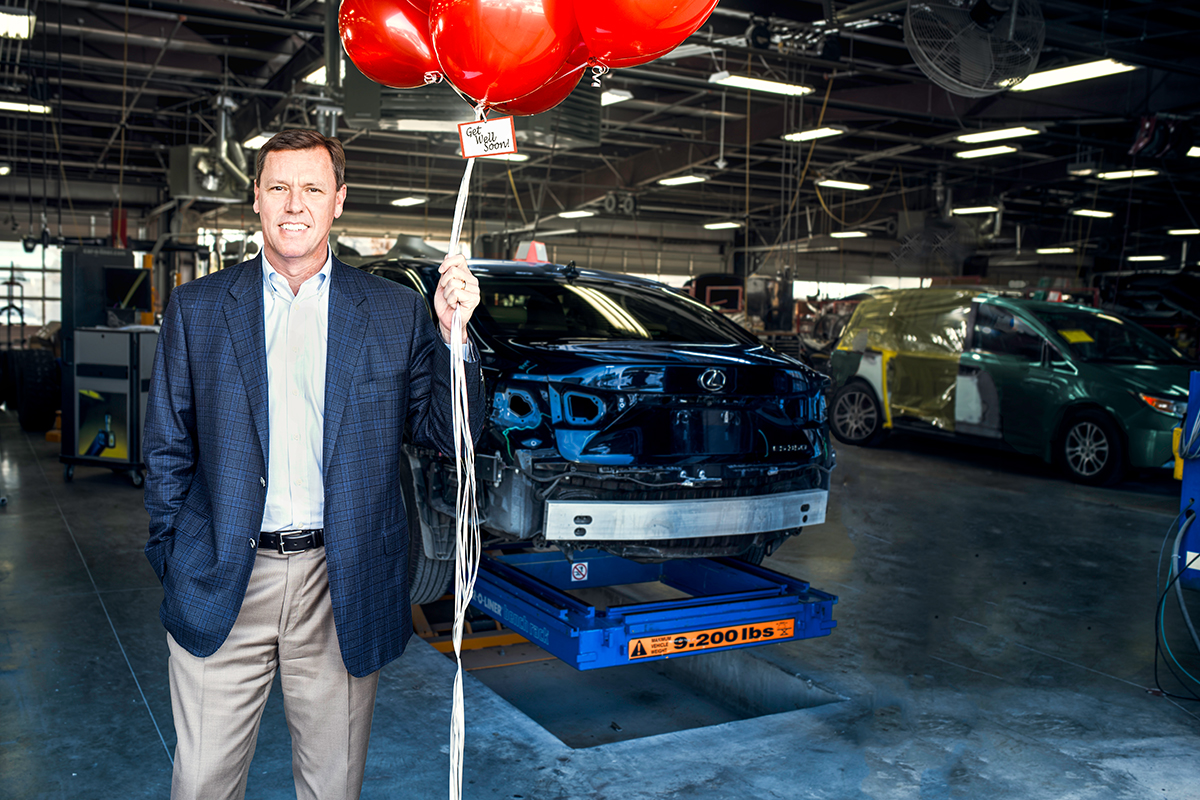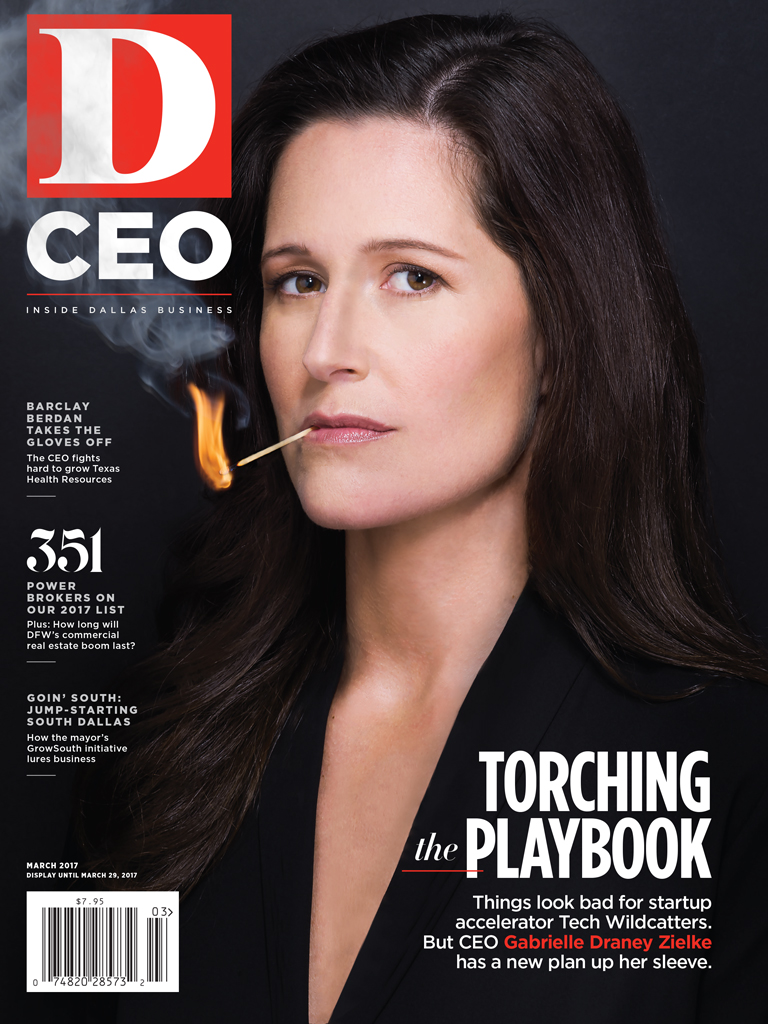If you own a motor vehicle, it’s predicted you’ll have an accident once every 10 to 12 years. Whenever one happens it can trigger a major hassle, with out-of-pocket costs, work disruptions, and angst over finding an honest, efficient repair shop. It’s an ordeal that Steve Grimshaw—CEO since 2009 of Caliber Collision, the nation’s largest collision-repair outfit—knows well and has confronted head-on.
Before he joined the company, Lewisville-based Caliber “had a good reputation for fixing cars from a quality perspective, but nothing else. It was lacking a focus on customers,” Grimshaw says. “So, we designed systems and processes to focus on the customer—managing the customer, explaining everything, showing empathy, communicating that [repair] is a process. They must be fully satisfied … and you have to knock it out of the park.”
Under Grimshaw’s leadership, Caliber—whose tagline is “Restoring the rhythm of your life”—seems to have knocked quite a few out of the park. The company has increased its number of locations, from 68 to more than 460, in states like Texas, California, and Arizona, and its revenue, from $280 million to $1.65 billion. Today, Caliber dominates the $40 billion U.S. collision-repair industry, which is highly fragmented with tens of thousands of small, mom-and-pop shops. Caliber and three other big companies—including Dallas-based Service King—together own only about 12 percent of the market.
In addition to spending on basic services for customers such as damage repair, parts replacement, painting and refinishing, Caliber ponies up at least $10 million a year on “personal development training” for its managers and staff. That’s especially important because the company has grown so rapidly, adding a total of 114 new sites in 2016 alone, for example.
Helping with the company’s expansion spree has been Tim Patterson, managing director and head of the Toronto office for Ontario, Canada-based OMERS Private Equity, which makes private equity investments for one of Canada’s largest pension funds. Patterson joined the Caliber board of directors after OMERS snapped up 75 percent of the Texas company for an undisclosed sum in 2013.
“Steve is a big reason why OMERS was so interested in Caliber,” Patterson says of the chief executive. “He’s a great leader. He has a natural ability to inspire people to achieve great things as a team.”
The private equity firm is “bullish” on Caliber’s growth prospects, Patterson goes on, since “insurance companies are pushing more and more volume to large operations like Caliber, because they can offer better-quality service overall. They have the IT infrastructure and can provide faster turnaround times for repairs. That’s a big deal, because of the rental-car expense [to the insurance carrier]. Large operations also have higher customer satisfaction ratings, making for a win-win-win all around.”
With roughly 10,000 employees now—up from 1,600 when Grimshaw came aboard—Caliber foresees adding 120 to 150 new locations in 2017, boosting its annual revenue to about $2.5 billion. It’s all the result of his “restoring lives” focus, Grimshaw contends. “We’re in the customer service business,” he says. “We just happen to fix cars.”






